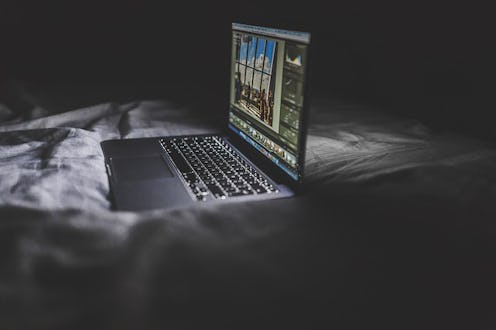Life
6 Reasons Being A Night Owl Is Dangerous

In 1965, 17-year-old high school study Randy Garner stayed awake for 264 hours, or 11 days, for a no-sleep experiment. His eyes stopped focusing by day two, and soon after, he lost his ability to identify objects by touch. By day three, he was moody and uncoordinated, and by the end of the experiment, he couldn't concentrate, remember anything short-term, and became paranoid and started hallucinating. This is the picture that Clauda Aguirre paints of what it means to be without sleep in her TED-Ed video, and it sheds light on how we're more sleep deprived than we assume, and it's having a greater effect than we realize.
Staying up late may have been cool in elementary school, but as adults, our sleep becomes even more crucial to prioritize. This is because kids will ultimately just let themselves fall asleep if they really need to catch up, but adults don't. Between coffee and other stimulants (even anxiety) we keep ourselves going out of fear, obligation, and duty, when in reality, we're slowly grating at our health.
The reason why this applies to night owls in general is because staying up later is basically the best way to assume you'll lose hours most consistently is if you regularly start your sleep schedule late. There are many reasons for this, but mostly it's having to be up for work mixed with your body regulating to keep you up during the day. Regardless, not getting enough sleep is detrimental for your health and well-being, and to prove to you why being a night owl is not the cool, edgy, hip thing to do, here are a few scientific reasons why "sleep > all" else should be your motto.
It Stifles Creativity
A lack of sleep ultimately affects the function of your central nervous system, which governs many things (short term memory among them) but also, creativity. So many night owls are often creatives, yet interestingly enough, they are actively decreasing their ability to perform.
It Wreaks Havoc On Your Immune System
If you find yourself always feeling under the weather, this could be why. While you're sleeping, your immune system produces infection-fighting antibodies and cells. Without sleep, you're left largely defenseless.
It Messes With Your Sense Of Hunger
When you're low on energy, your body will use food as refuel — but food, while great for energy, cannot replace the energy that sleep provides, hence the need to keep eating without ever really feeling satisfied.
It Fuels Memory Loss
The less you sleep, the less your brain "stores away" memory, and the less your central nervous system is able to process short-term memory as well. (Scary, right?)
It Can Strain Your Heart Into Disease
Too little sleep produces in your body more of the chemicals and hormones that can lead to heart disease. In fact, according to this 2011 research, people who sleep for six hours or less each night and have problems staying asleep have a 48 percent higher risk of developing or dying from heart disease.
It Can Cause Spontaneous Death – Otherwise Known As Karōshi
If you've never heard of it before, there is a phenomena in which people who are overworked literally just drop dead. (If that's not terrifying enough to get you in bed, I'm not sure what would be).
Images: Giphy (2); Pexels